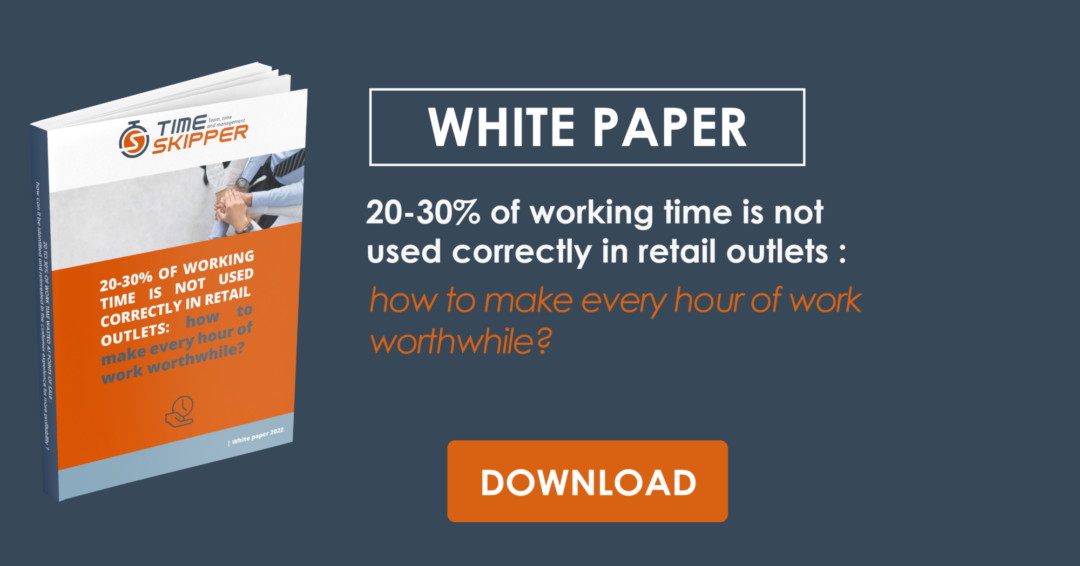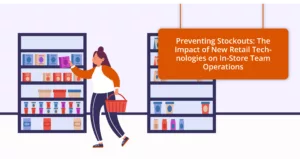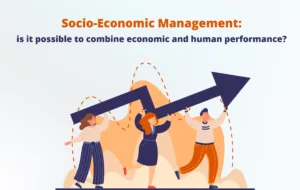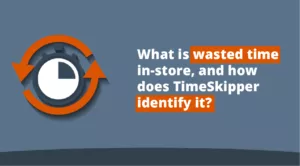Falling sales, declining non-food sales due to the rise of specialists, loss of market share due to the success of hard discount and convenience formats, as well as the breakthrough of e-commerce in non-food and food… The hypermarket presents a relatively dense range of battles to be fought, if it is to win the battle to restructure. In recent years, an additional issue has come to the fore, to make matters worse: the difficulty of recruiting and retaining staff.
Indeed, the turnover rate in hypermarkets is accelerating, and while until 4 or 5 years ago, the phenomenon was more noticeable in city centers, today, stores in rural areas are also experiencing recruitment difficulties. In short, the prospect of working in a hypermarket no longer appeals… What are the reasons for this, what are the impacts, and how can we stem the exodus of employees?
Hypermarket business requirements and the aspirations of new generations
According to sales outlet managers, the recruitment problem faced by the retail sector is generational in nature, and stems from time constraints, physical constraints and direct confrontation with the customer. A bit problematic, considering that these specificities are intrinsic to retail.
And yet, there was a time – the time of the working-age baby boomers – when the supermarket sector and the hypermarket model were booming. New food-related professions were exploding, and people were attracted to and embracing this promising concept, whether as employees or customers. The hypermarket was therefore one of the major players in suburban France and one of the leading employers, at least until the mid-1980s. While Generation X enjoyed successful careers in supermarkets, industrialization gave them the image of a steamroller, crushing local craftsmen and producers along the way, and an oppressive monster, depriving employees of all autonomy.
It’s easy to see why this type of working environment can be off-putting to Generation Y, who find it hard to relate to the sector, which is associated with ideas such as working conditions that are the antithesis of comfort, lagging behind in technology and digital technology, and a very strict framework with no formally defined rules. In addition, the retail sector has long had a reputation for a very rigid, dirigiste management style, and for maintaining constant pressure on its employees.
Generation Y no longer wants to be constrained, rejects authority and is uncomfortable with customer demands. Its members cultivate their individualism and personal well-being, in step with the evolution of new technologies, and are inclined towards manual professions, only if they present an impact on sustainable development, a return to universal values, or a positive sociological dimension. These professional zappers (baby-boomers held between 1.5 and 3 jobs between the ages of 25 and 35, while Generation Yers hold twice as many), assert the need to give free rein to their creativity and co-decide on rules and strategies… in short, to satisfy an immense need for autonomy to achieve self-fulfilment.
And yet, the reality is profoundly changing. Over the past decade, a paradigm shift has been underway to remedy this disenchantment: environmental considerations (elimination of plastic bags), fair trade (return to short circuits, organic and local produce, with Carrefour’s food transition, for example), social considerations (well-being and serenity in the workplace) have become key issues, and above all, the development of new technologies has encouraged a return to autonomy, so dear to the younger generations. While retail may not yet appeal to them in its entirety, and the gap between their aspirations and the reality on the ground still persists, we can be sure that the efforts being made by all players in the sector should help to (re)seduce and “keep” our Ys, and soon our Zs!
What impact will this have on point-of-sale organization?
A few years ago, store directors and managers would “just” complain that they didn’t have enough staff to set up signage, change labels or keep the shelves clean. Today, the complaints touch on the fundamental basics of the trade, as witnessed by this small anthology of edifying shock phrases, which perfectly illustrate the reality of the moment:
“I’m in a situation where I’m reluctant to fire someone who steals from me, because I know I won’t have anyone to replace them,
“I don’t have enough hands left to fill the shelves“.
“Today I’m recruiting people I wouldn’t have recruited 3 years ago, because I don’t get enough CVs anymore, and people don’t stay“,
Indeed, it’s not easy, if not impossible, to achieve a profitable business model, as well as a high level of competence and quality, when you spend several weeks training employees, half of whom will have left during the course of the year. These untimely departures often force managers to take over the operational tasks of departing employees at short notice. As a result, they can no longer devote themselves fully to their core business, i.e. passing on knowledge, encouraging progress, giving vision… in short, it’s impossible to support and lead teams over the long term in such a context! As a result, the content of their mission is impoverished, and no longer attracts employees who could have grown within the company… and even less so those who could be recruited from outside to become managers.
Delaying recruitment means running the risk of seeing your team’s efficiency decline. Since candidates are not jostling for position, the remaining employees are asked to compensate for turnover, and the “demotivation/absenteeism” downward spiral begins. In such a context of team instability, it’s hard to raise standards and apply corporate or store strategy… and all the time and money wasted by management and the company!
So how can this state of affairs be remedied?
Recruit differently: surely / Retain existing strengths: imperatively
It has become necessary to move away from traditional recruitment methods, using existing resources such as social networks to find skills and CVs, but also using tools that simplify the process of acquiring and managing applications, as digital technology enables talent to be more visible than before, but makes recruitment more complex.
But once you’ve recruited, how do you maintain motivation, avoid absenteeism or departure in the face of the effort required, and think in the longer term?
Immediate response with a business management tool
The use of an activity management tool, such as the SaaS platform created by Timeskipper, can help you to deal with the sudden departure of your employees, and very quickly at that. In fact, since such a solution enables workloads to be distributed equitably, it is fully in line with the main priority motivational factors:
- The tool materializes recognition of the employee: its inclusion in the schedule gives the employee his or her rightful place in the store and in the team; it allows him or her to exist.
- The tool also gives him full visibility of the activity of other team members, thanks to the activity schedule. He’s part of a whole in which everyone works equally.
- The tool also promotes well-being at work, since employees know exactly what they have to do, know how to do what is asked of them, and are guaranteed the time needed to complete their various tasks.
- Finally, through the tool, each employee has the ability to help another person, and knows that he or she can be helped in case of overload. This is reassuring.
In fact, the fairness, transparency and serenity inherent in daily use of the Timeskipper platform improve the use of a day’s working time, the perception of the stakes involved in the tasks to be carried out, and cohabitation with others. In this way, the activity management tool acts as a real booster of motivation and protection against absenteeism. It counteracts the effects of restricted working hours, heavy loads to carry, boredom or, conversely, the impression of always being overloaded, all of which lead inexorably to questions about one’s usefulness at work, and indeed one’s usefulness at all.
As the activity management tool factualizes people’s efficiency, it is possible to detect their difficulties from the outset: under-performance, skills issues, need for coaching and/or training, etc. By helping employees to grow beyond the difficulties encountered, we not only avoid demotivation, but also enable them to take pride in their actions.
While recruiting and retaining staff is a panacea for any organization wishing to be sustainable, it is important in the long term to be able to attract even more candidates in order to ensure growth and profitability. For generations Y and Z, taking part in process rethinking to do things better and faster – let’s not forget that constraint is abhorred and ease adored by millennials – as well as in continuous improvement, are profound motivating factors. Because the world is speeding up, and these generations have no problem getting things done faster, it’s crucial to bring them into the thinking process, using the way they work and the skills their specificities can bring.
And in this, Timeskipper has a real role to play: it gives employees greater flexibility in choosing their working hours, to cover a measured and known workload; it lets everyone in a team choose to take part in a common task, according to their availability; it also offers them the possibility of dividing up the tasks themselves, and proposing, based on their own experience, modifications to their organization with a view to making it more efficient. The ideal range of opportunities to develop individual autonomy!





